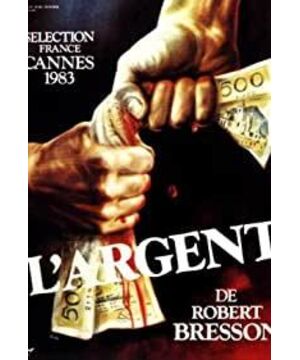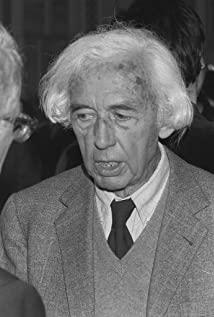2. Crime and punishment are not equal. Some people commit crimes and wealthy parents clean up the mess. , The punishment is very light. Some people will be completely ruined when they make a mistake, and they will escalate from petty crime to serious crime. There is more and more lack of love, so they hate people and anti-society more and more. What's the fault? If he hadn't been framed, he might have been an ordinary gasoline truck driver all his life. But not everyone who is framed is bound to be unbalanced and embark on a criminal path. He was stunned in his original unit for an unnecessarily sinful crime, and other places are not necessarily willing to demand a tainted person like him. When he accepted that job, he must have guessed that he was going to be a helper in the bank robbery, but he needed money, and he could do whatever he could for money. When did he start to have this kind of morality?
3. The female prisoner is responsible for reviewing the male prisoner’s letters. After a long time, a male prisoner’s letter will be handed over to a female prisoner for processing. She will become fettered with the male prisoner’s life. She seems to be a reader, watching a movie. In the novel, she cares about the life of the protagonist, is curious about what will happen next, and is sad for the tragedy. The audience and the film, the letters of the female prisoners and the male prisoners, reached an isomorphism. Or, even if it is not understood from the self-referential point of the film creator, the plot is very emotional and touching.
4. Many familiar elements can be seen in this masterpiece of Bresson, such as photo shop clerk and open-air coffee shop (pickpocket) who think the theft is reasonable; unscrupulous teenagers riding small motorcycles and enslaved victims Woman (Donkey Batsa); escape and struggle in prison: We love life, so we are not afraid of death (death prisoner escape).
5. Several anti-social personalities in the film.
The original photo studio employee and the male owner: When he gave false testimony for the first time, he worriedly asked what the consequences would be. It can be seen that, to some extent, the selfish and hypocritical shopkeeper let him break the precept and lead him to damage. An innocent life of stealing, and justification for theft-the modern social concept of the so-called stealing is actually just that there are no rules and do whatever he wants. He thinks he enjoys the right of pardon and the privilege of stealing.
As a thief and a scammer, he also has a sense of moral superiority-I steal from the rich and help the poor.
In prison, he claimed to "atonement" and help the male protagonist escape from prison. The male lead said that I don't want to go, I just want to kill you. He said, "None of us will kill. In this world, we may only have a little conscience." Anti-social tendencies are full of pretensions. The male lead replied: "Think with your conscience. If you were me, what would you do?" The implication was that if you were slandered and framed like me, and everything was taken away for no reason, you too Will want to kill and revenge.
One difference between the two can be seen here: the man in the photo shop only steals and does not kill. He also said in the dock, "(My behavior) will not cause bloodshed." He didn't have the guts, nor was he desperate. Like the male protagonist, he kills without blinking, he is still in a state of playing the world, just like the childish childishness that he revealed beforehand when he wants to escape from prison. The male protagonist became a murderous madman once he broke the tank, hated everyone, and was a hundred times more ruthless than the instigator who falsely accused him first. This unexpected inversion is really embarrassing.
The male lead’s roommate: pacing around with the book, preaching to the male lead the "doctrine" of the supremacy of money:
"Even if you are judged, you should still have the right to be gifted. When you realize your existence and the absurdity of society, and you have no choice, what will you do? They say:'Obey, as long as you don't be nosy .Wait, the world will be happy soon.’ But I don’t want to wait until the whole world is happy, believe me, it will only wait until you become stupid. I want to get happiness now, by my own means. Money! Tangible God is omnipotent.”
Judging from the male protagonist’s later behavior, this view of the supremacy of money has indeed firmly taken root in his heart, or that he originally had this tendency and was pushed in that direction. , Completely overwhelmed.
Just like the previous line of the original photo studio employee said: "If I have money, I will be a good person."
6. The enslaved woman, like Batsa, seemed to be temporarily saved by her unconditional love. He is a lost lamb with a desperate and lonely heart. However, after all, it was too late. The xinxing had taken shape, and love could no longer redeem him. He did love her mother-like kindness and care, but he also hated her incompetence for being bullied and slaughtered. In his opinion, after all, only money can make a person independent and free. In the midst of the contradiction, he could not escape the suffering of guilt after all, so he chose to surrender and end it all.
It's also time to end. If he goes to hell, if he is all in hell, then we might look at the so-called hell from a new perspective, right?
View more about L'Argent reviews







